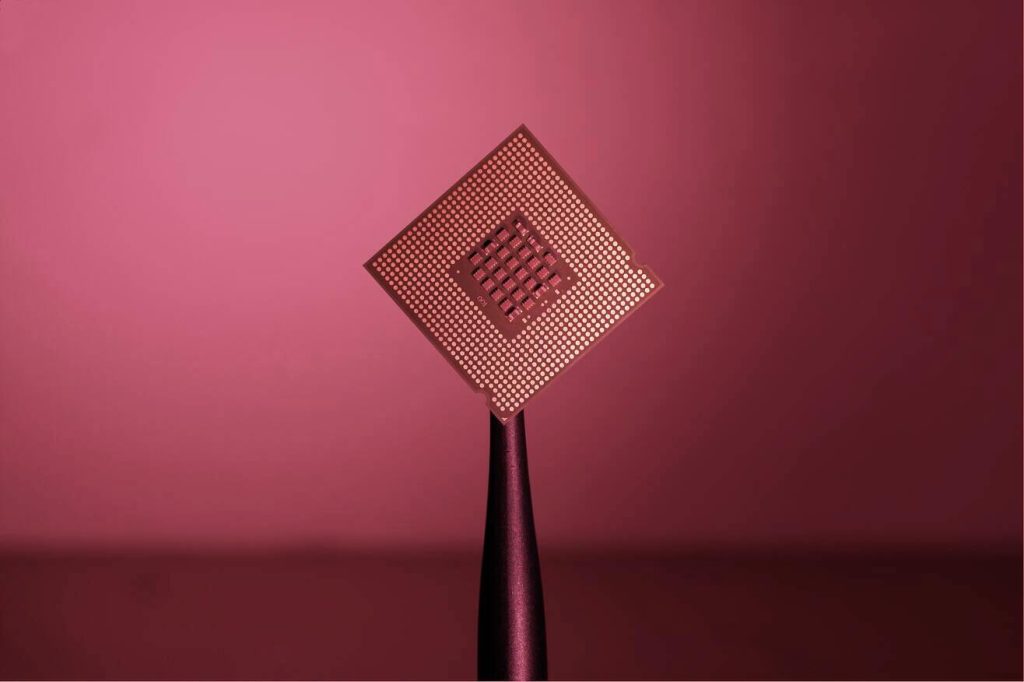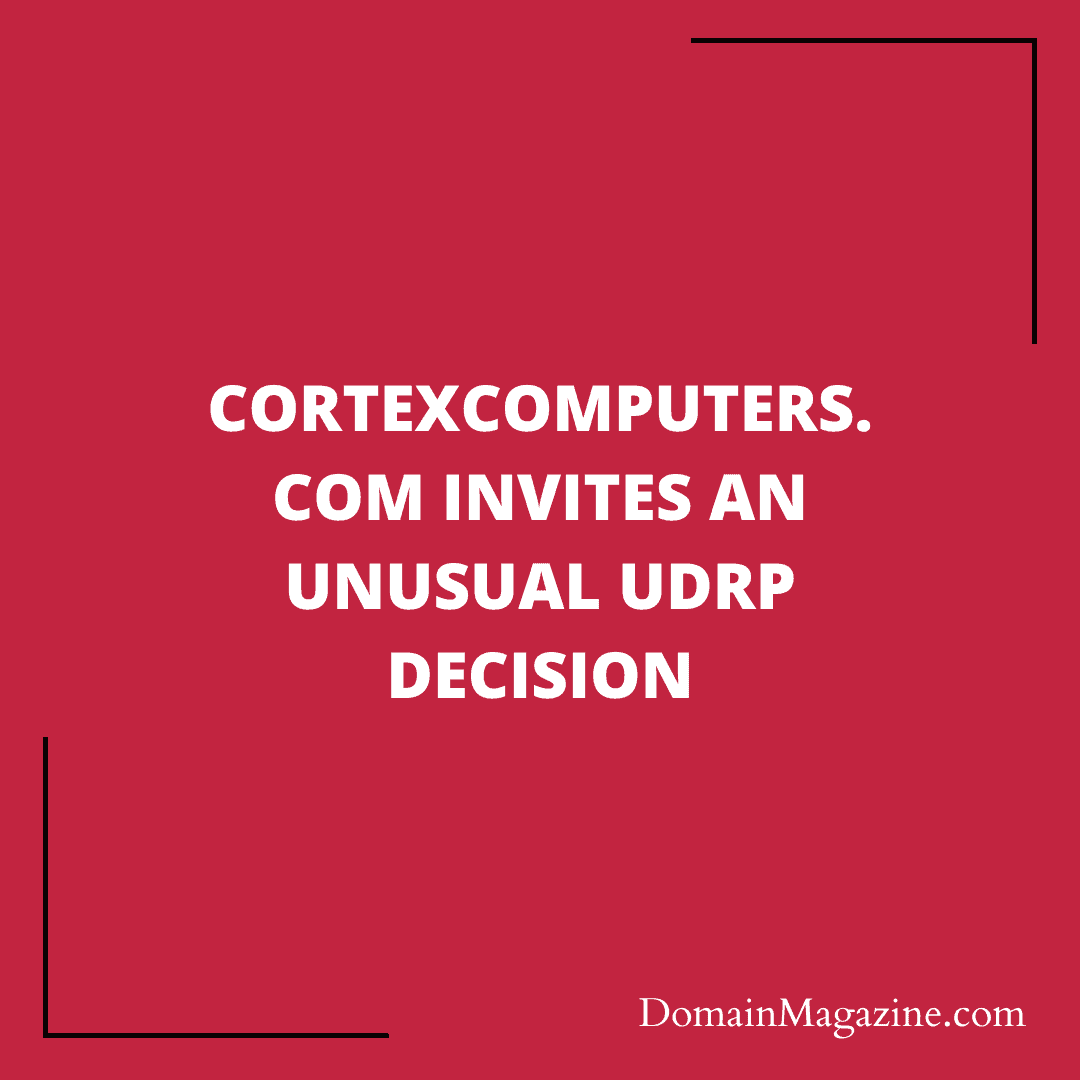Domain Name disputes decisions usually tilt towards the prior event, whether it be the registration of the said domain name or related trademark. However, sometimes there are exceptions to it.
There might be the case, when an entity who registered earlier fails to get the domain name. However, this can happen depending upon the other scenarios revolving around the disputed domain name. As we would see in our domain story of CortexComputers.com.
What’s the case?
Arm Limited is an electronic products company. It is a company that provides technology-related goods and services, including designing electronic products such as computer processors, graphics processors, digital memories, and peripheral hardware, as well as supplying software and consultancy services for computer hardware. It has sold over 200 billion products under its ARM brand, and its products and services reach over 70 percent of the world’s population.

Their processors, marketed under the CORTEX trademark, are used as the main Central Processing Unit (“CPU”) for most mobile telephones and many other widely used devices, including laptops, tablets, televisions, and other electronic products.
However, another entity had registered the domain name CortexComputers.com. To oppose this, Arm Limited reached WIPO for arbitration.
Complainant’s Case
The Complainant is a well-known technology company that has been providing goods and services related to computer hardware and software for over 30 years. The Complainant owns numerous trademark registrations worldwide for the word trademark CORTEX, including in the United States, where the Respondent lives and is employed. The Complainant also owns several domain names that incorporate the CORTEX trademark.
The disputed domain name, CortexComputer.com, was registered on June 3, 2018, and at the time of the Complainant’s screenshot taken on March 31, 2022, it was resolved to a GoDaddy website stating that the domain was registered but may still be available. At the time of this decision, the disputed domain name resolves to a GoDaddy parking page stating that the domain is not available, followed by links to various GoDaddy resources.
It appears that the Complainant is alleging that the Respondent’s registration and use of the disputed domain name infringes on the Complainant’s trademark rights in the CORTEX mark. Given the Complainant’s extensive use and registration of the CORTEX mark for goods and services related to computer hardware and software, it is possible that the Respondent’s use of the disputed domain name for similar or related goods and services may create a likelihood of confusion among consumers as to the source or affiliation of the products or services offered under the disputed domain name.
The Complainant argues that the disputed domain name is confusingly similar to its registered CORTEX trademark, as the domain name incorporates the Complainant’s trademark in its entirety, along with the term “computer” which is commonly associated with the Complainant and its goods and services. The Complainant contends that the addition of the term “computer” is insufficient to distinguish the disputed domain name from the Complainant’s registered trademark, and that the public is likely to be confused into believing that the disputed domain name belongs to the Complainant and not the Respondent.
The Complainant further argues that the Respondent has no rights or legitimate interests in the disputed domain name, as the Respondent has not used the domain name in connection with a bona fide offering of goods or services, and is not commonly known as “cortex”. The Complainant also contends that the Respondent is not making a legitimate noncommercial or fair use of the disputed domain name without intent for commercial gain to misleadingly divert the public or to tarnish the Complainant’s CORTEX trademark.
Lastly, the Complainant asserts that the disputed domain name was registered and is being used in bad faith, as the Respondent’s registration of the disputed domain name is consistent with establishing a parked domain for potential phishing or pharming attacks, and that the public is likely to be confused, misled, and deceived as to the source of the disputed domain name. The Complainant contends that the Respondent has no legitimate reason to have registered a domain name incorporating its CORTEX trademark, except to attempt to capitalise on the enormous goodwill and marketplace recognition associated with the Complainant’s trademark, and to prevent the Complainant from being able to register the disputed domain name itself.
Respondent’s Rebuttal
The Respondent’s argument is that the term “cortex” is a common term used in the field of neuroscience to refer to the outermost layer of the brain, and the Complainant should not be able to enforce a trademark registration of a common term in biology. The Respondent registered the disputed domain name in 2018 because he was considering creating a brain-sensing headset under that name, once he completed his studies. ‘
He owns about 20 other domain names, all of which are related to neurotechnology, and the Complainant will find no instance where a reasonable person could conclude that he has registered any domain name with malintent. Some of these domain names include ComputerCortex.com and CortexComputerInterface.com.
The Respondent’s ownership of other domain names related to neurotechnology demonstrates that his intent is related to the use of the term “cortex” in that context, and not to the development of microprocessors. The Respondent claims that he was not aware of the Complainant’s CORTEX product line until he received notice of this dispute, and did not respond to the Complainant’s initial message because he questioned the legitimacy of the claim. The Respondent also argues that the Complainant has not proven that it has suffered any damage from the Respondent’s registration of the disputed domain name, and that the complaint is a predatory attempt to wrongfully cause the Respondent to hand over his property.
Supplemental Filings
The Complainant filed a Supplemental Filing on August 13, 2022, which argued that it contained material facts and evidence that could not have been reasonably included in the original Complaint. The filing contained two contentions:
The Respondent’s acknowledgement that they had not used or made any bona fide effort to use the disputed domain name is evidence of their lack of legitimate interests in the domain name.
The Respondent’s failure to provide documentation of their expenses to substantiate their demand for USD 20,000 is evidence of both their lack of legitimate interests in the disputed domain name and their bad faith registration and use of the domain name.
The Complainant also included information about their attempts to settle the dispute with the Respondent. They offered to pay USD 1,000 for each of the three domain names, but the Respondent demanded USD 20,000 for the disputed domain name and a combined additional USD 30,000 for the other two domain names. The Respondent failed to provide documentation to substantiate this demand.
On the other hand, the Respondent argue that his ownership of the disputed domain name is legitimate because he works in the neurotechnology/neuroscience industry, where the word “cortex” is a common term, and because he plans to use the term “cortex-computer interface” to describe a product he is developing. The Respondent also contends that he did not register the domain name in bad faith, and that the personal value he assigns to it is USD 20,000.
Jury’s Judgement

The Panel first discusses the admission of supplemental filings and decides to admit the Complainant’s Supplemental Filing, which contains evidence of the Respondent’s reply to the Complainant’s offer to settle the dispute.
The Panel then moves on to discuss the second element of the UDRP, which is whether the disputed domain name is identical or confusingly similar to a trademark in which the Complainant has rights. The Panel determines that the disputed domain name, when the gTLD “.com” is ignored, consists of the Complainant’s registered word trademark CORTEX followed by the word “computer”, which is associated with the Complainant’s products. The Panel finds that the disputed domain name is confusingly similar to the Complainant’s trademark.
The Panel then moves on to discuss the third element of the UDRP, which is whether the Respondent has rights or legitimate interests in the disputed domain name. The Panel finds that the Respondent is not a licensee of the Complainant, is not otherwise affiliated with the Complainant, and has not been authorised by the Complainant to use its CORTEX trademark.
The Panel also finds that the Respondent has not provided any evidence that it has been commonly known by, or has made a bona fide use of, the disputed domain name. However, the Panel notes that the Respondent has made a claim that he has a professional and personal interest in the field of neurotechnology and that he proposes to use the disputed domain name in a future entrepreneurial project in that area.
The Panel assesses the validity of the Respondent’s claim by examining various content about him and his activities that is presented on his website, on his student-led research laboratory’s website, on his influencer website, on his Twitter account, on his Instagram account, on his YouTube channel, and in some news articles on his College’s website. The Panel finds that this content plausibly establishes that the Respondent has graduated from studies in the field of neurotechnology, conducts research in relation to brain-computer interfacing, and undertakes a range of entrepreneurial activities.
The Panel determines that there is no evidence currently before it that suggests the Respondent’s asserted motive for registering the disputed domain name is simply a cloak for some other, mal-intentioned, motive. The Panel finds that the Respondent has rights or legitimate interests in the disputed domain name.
The Panel then addressed the issue of Bad Faith. The Panel was contented with the evidence submitted by the Respondent and rejected any claim of his domain name registration to be in Bad Faith.
The Complaint was denied.
You can read the complete case here.


Join the Discussion